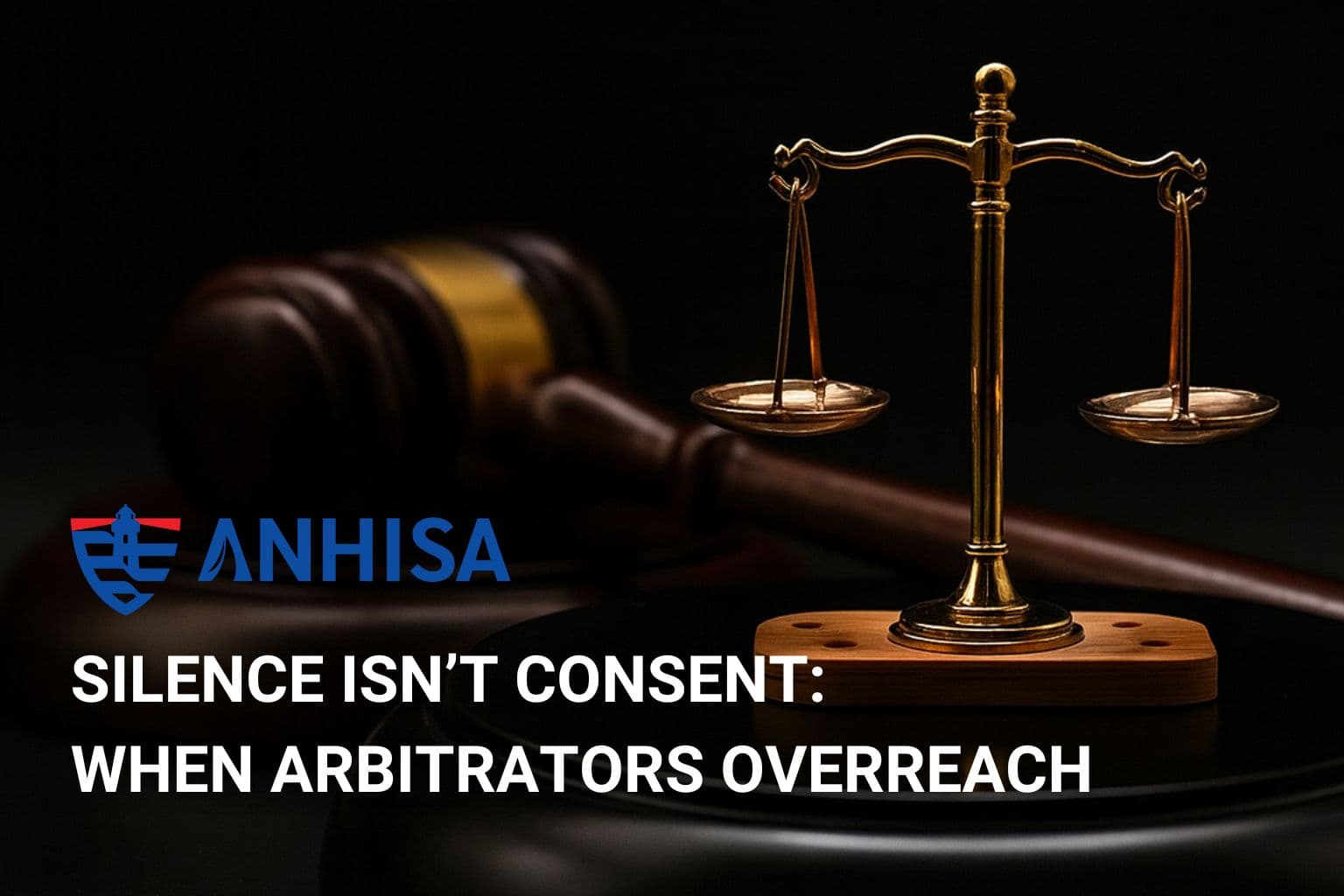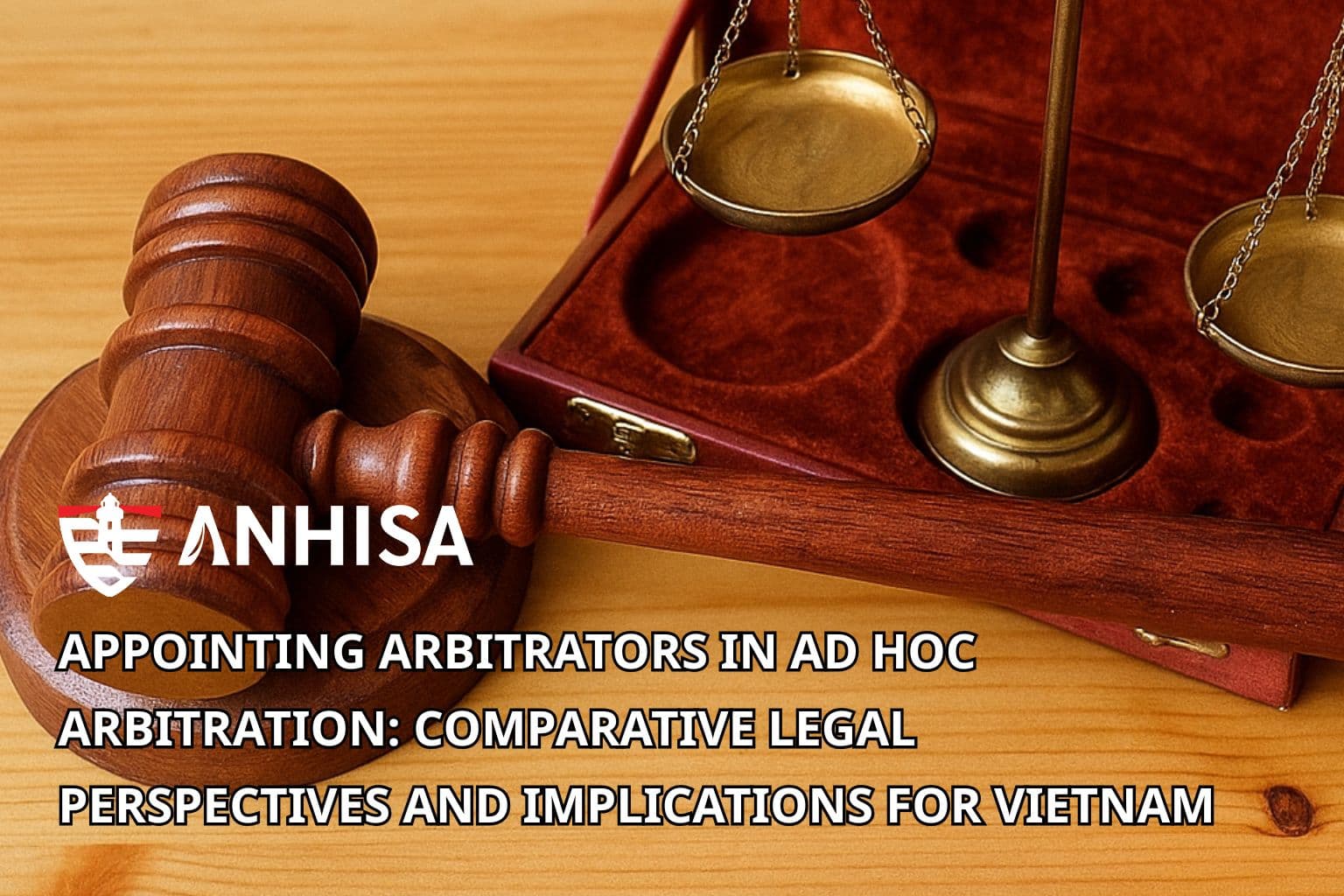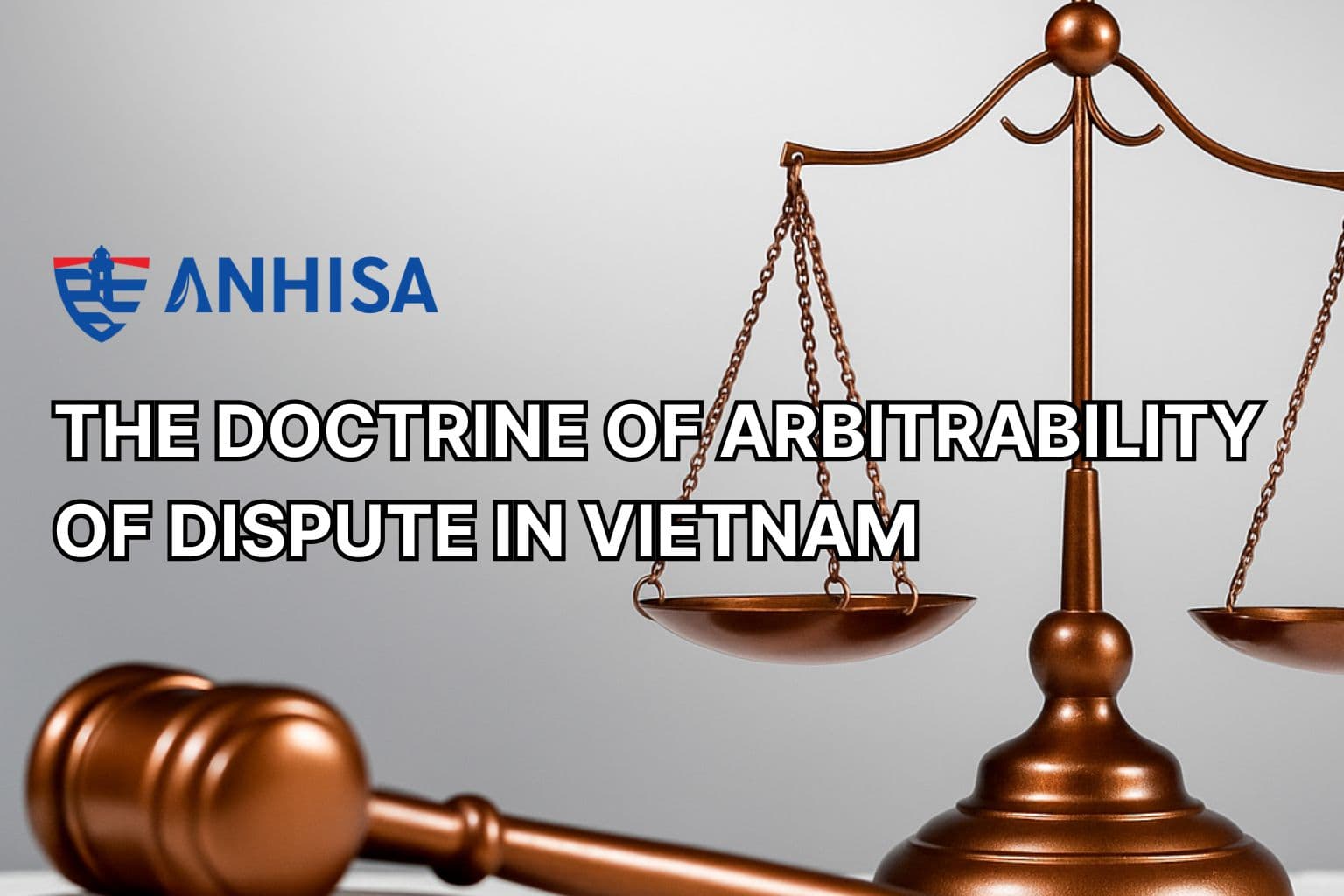[A SERIES OF ARBITRATION NOTES] Episode 6 | Serving documents through the Arbitral proceedings: some notes for parties from Vietnam
January 07, 2025
Foreword
In both domestic and international arbitration proceedings in Vietnam, proper service of notices, documents, and communications to the parties plays a crucial role. Duly serving ensures their awareness and effective, lawful participation in the proceedings, safeguarding their right to fair presentation and other rights. Additionally, proper service minimizes the risk of an arbitral award being set aside or refused recognition and enforcement by Vietnamese courts at the request of the Award debtor.
Throughout our experience assisting clients in arbitration disputes both in Vietnam and internationally, we have encountered numerous instances where serving notice to the concerned party resulted in unforeseen challenges. Subsequently, many award debtors have sought to set aside or refuse the recognition and enforcement of foreign arbitral awards in Vietnam.
Serving when the seat of Arbitration in Vietnam and the risk of setting aside the targeted Award
If the seat of arbitration is in Vietnam and the proceedings are governed by the Vietnamese Law on Commercial Arbitration (Law No. 54/2010/QH12 passed by the National Assembly on 17 June 2010) (“LCA 2010”) or its predecessor, the Ordinance on Commercial Arbitration, service of notices is explicitly regulated.
Under LCA 2010, unless otherwise agreed by the parties or specified in the arbitration center’s procedural rules, notices and documents from the arbitration center or the arbitral tribunal are sent to the parties’ addresses or their representatives’ addresses as notified by the parties. These can be delivered by direct handover, registered mail, ordinary mail, fax, telex, telegram, email, or other methods that provide proof of delivery.
The addresses given by the parties may be interpreted as those used during contract negotiation or execution, stated in the contract, or used for previous communication. Therefore, while company headquarters or contact emails are often established based on the Enterprise Registration Certificate (or other same-valid documents such as Incorporation Certificate, Business Registration Certificate…), arbitral tribunals and secretariats must carefully consider the addresses notified or agreed upon in the contract or exchanges.
In some cases, parties may assign specific personnel (or, even, their agents) to handle contracts, and their email addresses might be listed as contact information. Contracts may also list addresses for representative offices or branches, which the tribunal and secretariat should carefully verify.
For the parties involved, any changes in the addresses of their headquarters, representative offices, or branches frequently used for transactions with partners should be promptly communicated to avoid losing their right to participate in or object to arbitration proceedings.
Since 2010, a Vietnamese court had dismissed requests to set aside arbitral awards from award debtors who claimed not to have received procedural documents. In this case, a debtor’s address in the contract differed only by the omission of the word “Tower” among the twin-tower (specifically, Tower A or B), and the Award debtor had failed to notify the other party of the updated address. Consequently, the tribunal and secretariat sent documents to the contractually agreed address (without the “Tower” thereof), and the court held that the debtor’s failure to notify the new address was their own fault, not a violation of arbitration procedural rules. This perspective has since been upheld by several other courts in Vietnam.

The above example illustrates a lesson that companies should consider the stability of specific personnel email addresses provided in contracts. If an employee listed as the contact leaves the company, and their email is deactivated, this could lead to missed notices due to the company’s negligence. Including both individual and more stable system email addresses for contact purposes is advisable.
It is important to note that the wording of LCA 2010 differs from that of the arbitration laws of some other countries and the UNCITRAL Model Law on International Commercial Arbitration in addressing the service of notices. For example, Article 12 of LCA 2010 provides specific criteria for valid service under Vietnamese law. In contrast, Article 3 of the UNCITRAL Model Law on International Commercial Arbitration considers parties to have received notice if it is delivered to designated addresses.
Law on Commercial Arbitration of Vietnam[1]
Article 12. Service of notices and order of services
Unless otherwise agreed by the parties or provided by the arbitration center’s rules of proceedings, the mode and order of serving notices in arbitral proceedings are specified as follows:
- Each party’s written explanations, correspondence papers and other documents shall be sent to the arbitration center or Arbitral Tribunal in sufficient copies so that every member of the Arbitral Tribunal and the other party has one copy, and one copy is preserved at the arbitration center;
- Notices and documents to be sent by the arbitration center or Arbitral Tribunal to the parties shall be sent to the addresses or to their representatives at the correct addresses notified by the parties;
- Notices and documents may be sent by the arbitration center or Arbitral Tribunal directly, in registered or ordinary mails, by fax. telex, telegram, email, or other modes which acknowledge such sending;
- Notices and documents sent by the arbitration center or Arbitral Tribunal will be regarded as having been received on the date the parties or their representatives receive them or if such notices and documents have been sent under Clause 2 of this Article.
UNCITRAL Model Law on International Commercial Arbitration[2]
Article 3. Receipt of written communications
(1) Unless otherwise agreed by the parties:
- (a) any written communication is deemed to have been received if it is delivered to the addressee personally or if it is delivered at his place of business, habitual residence or mailing address; if none of these can be found after making a reasonable inquiry, a written communication is deemed to have been received if it is sent to the addressee’s last-known place of business, habitual residence or mailing address by registered letter or any other means which provides a record of the attempt to deliver it;
- (b) the communication is deemed to have been received on the day it is so delivered.
(2) The provisions of this article do not apply to communications in court proceedings.
Regarding the determination of addresses, Article 3.(1).(b) of the UNCITRAL Model Law specifies the places of business, habitual residence, or mailing address as valid, or, if none of these can be found after reasonable inquiry, the addressee’s last-known place of business, habitual residence, or mailing address via registered mail or any other method providing proof of the delivery attempt.

Seat of Arbitration overseas and the complicated recognition and enforcement requests
When the seat of arbitration is outside Vietnam and the LCA 2010 no longer governs the arbitral proceedings, the technical provisions of LCA 2010 are not directly applied when Vietnamese courts review requests for recognition and enforcement of foreign arbitral awards. Instead, courts will evaluate whether the service adhered to the procedural rules of the arbitration center and whether it aligns with the fundamental principles of Vietnamese law.
In our experience, Vietnamese courts tend to support arbitral tribunals and centers that serve notices to the addresses and email addresses specified in the contracts between the parties, as well as the latest confirmed address upon the parties’ correspondence during the contract performance. In such cases, it is very challenging for award debtors to request refusal of recognition and enforcement of foreign arbitral awards on the grounds of not receiving procedural notices, provided these were duly served to the contractual addresses and email addresses.
We have encountered numerous cases with similar circumstances, and the Vietnamese courts have frequently aligned with this trend. An illustrative case from SIAC as touched on above involves a decision of the People’s Court of Hanoi City on the request for recognition and enforcement of a foreign arbitral award of SIAC’s arbitral Tribunal in Vietnam. Through the publicized decision, we were given to know that:
- The contracting and disputing parties agreed within the contract that any notices or correspondence to the Respondent (the Vietnamese party) shall be served via email and by courier at a fixed address in Hanoi. The email address and office location of the Respondent were mutually confirmed therein;
- Upon the proceedings, the procedural documents issued by SIAC were sent to the respondent via email and postal mail to the address in Hanoi City, as specified in the contract, including the email address on record;
- The Tribunal also collected a confirmation from Microsoft Outlook regarding an email sent to the Respondent in May 2016. The report stated that “the message to these recipients or groups has been successfully delivered, with no delivery failure notices from the recipient’s server (sales@*****…vn).”;
- Despite (deemed) receiving the notice for the formal hearing, the respondent did not appear. The arbitral tribunal proceeded with the hearing in the respondent’s absence, following SIAC Arbitration Rules;
- The final award rendered in August 2018, validated the delivery of the partial award issued in May 2016.
- Eventually, the Council of Hanoi Court figured out that the tribunal’s dispute resolution procedures complied with SIAC Arbitration Rules. Furthermore, both the Partial Award and the Final Award of 2016 were not found to be contradictory to the fundamental principles of Vietnamese law.
- Therefore, the Judges’ council found sufficient grounds to recognize and enforce the SIAC’s arbitral awards in Vietnam. The Hacoi Court’s decision affirmed the method of serving procedural documents employed by the arbitral tribunal under the Singapore International Arbitration Centre (SIAC).
[1] Law No. 54/2010/QH12 on Commercial Arbitration, passed by the National Assembly on 17 June 2010
Please find an unofficial translation of this legislation publicized on VIAC’s website: https://www.viac.vn/images/Resources/Legal-Informative-Documents/54_2010_QH12_114053.doc
[2] UNCITRAL Model Law on International Commercial Arbitration, as adopted by the United Nations Commission on International Trade Law on 21 June 1985, and as amended by the United Nations Commission on International Trade Law on 7 July 2006
ANHISA LLC AND OUR EXPERTISE
ANHISA LLC is a boutique law firm specializing in Dispute Resolution, Shipping and Aviation. Being the leading lawyers in various fields of law, our qualified, experienced, and supportive team of lawyers know how to best proceed with a case against or in relation to Vietnamese parties and are well equipped to provide clients with cost-effective and innovative solutions to their problems.
Regarding dispute resolution, we have represented Vietnamese and foreign clients in the resolution of disputes involving maritime, construction, commercial and civil matters. Our lawyers are well-equipped to offer services on a wide range of disputes and conflicts, whether cross-border or purely domestic, to appear before any Judges or Arbitral Tribunals. The firm is prepared to assist clients in designing the appropriate dispute resolution procedure to help resolve conflicts as efficiently and cost effectively as possible, which may involve combining elements of mediation and other methods such as arbitration.
AUTHORS
DANG VIET ANH
Managing Partner
Mobile: (+84) 983 467070
Email: anh@anhisa.com
NGUYEN THI TUYET MAI
Senior Associate
Mobile: (+84) 939 117398
Email: mai@anhisa.com
TRAN DUC MANH
Associate
Mobile: (+84) 337 649204
Email: manh@anhisa.com
This article aims to furnish our clients and contacts with general information on the relevant topic for reference purposes only, without creating any duty of care on the part of ANHISA. The information presented herein is not intended to serve, nor should it be considered, as a substitute for legal or other professional advice.
Related posts

SILENCE ISN’T CONSENT: WHEN ARBITRATORS OVERREACH
November 27, 2025

APPOINTING ARBITRATORS IN AD HOC ARBITRATION: COMPARATIVE LEGAL PERSPECTIVES AND IMPLICATIONS FOR VIETNAM
October 08, 2025

PARTIES TO AN ARBITRATION AGREEMENT
October 01, 2025

THE DOCTRINE OF ARBITRABILITY OF DISPUTE IN VIETNAM
September 24, 2025
- EMAIL:
- om@anhisa.com
- office@anhisa.com
- TEL:
- Hanoi Office: +84 24 320 47609
- Saigon Office: +84 28 5416 5873
- HOTLINE:
- +84 (0) 939 117 398
- +84 (0) 983 488 380

